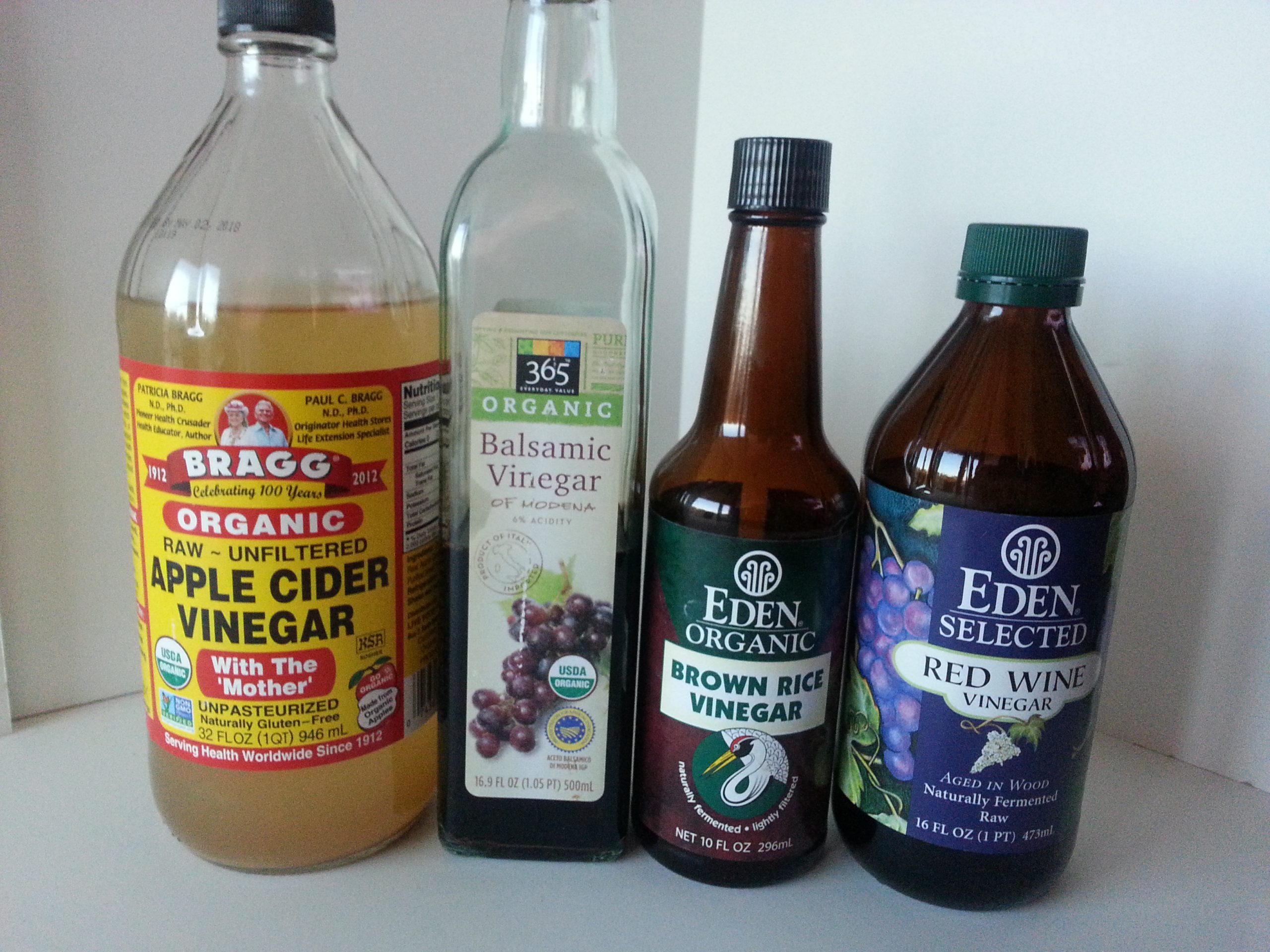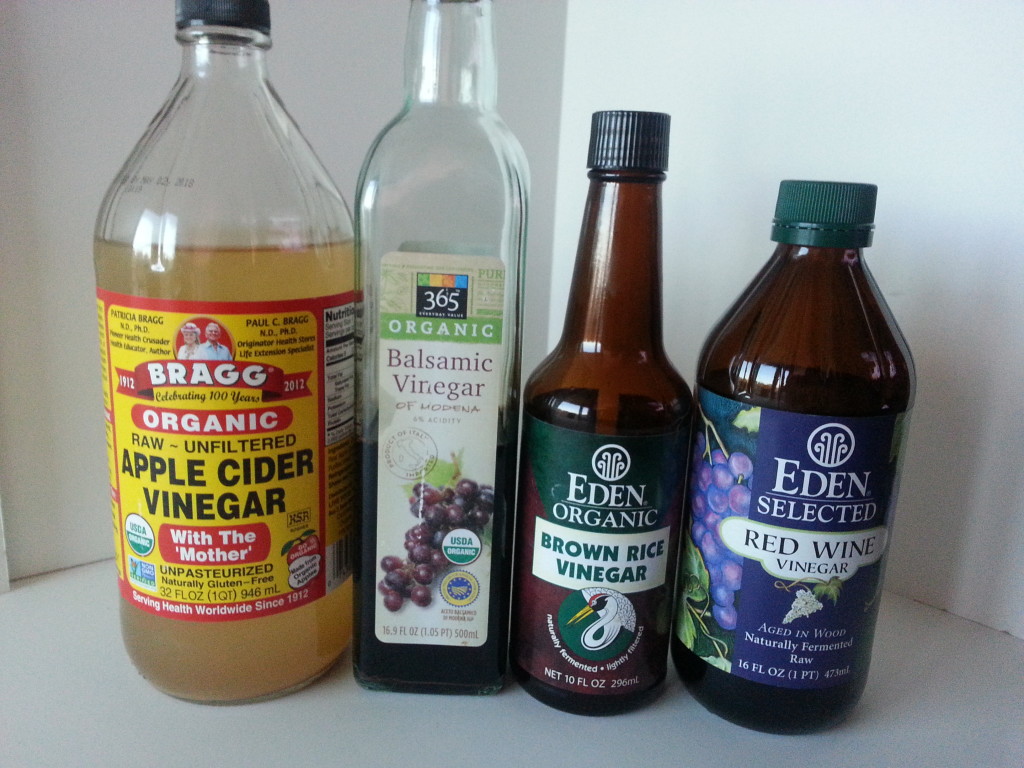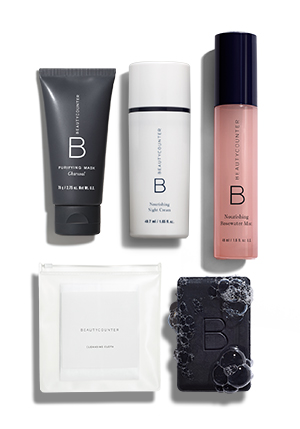25 October, 2013
Ingredient Spotlight: Vinegar

One thing that I am finding out along my jouney to healthier living is that I am still learning. Even now after 4 years of college studying nutrition, a one year internship in nutrition, and 2 years of cutting out processed foods there are still things that I am learning more about. One thing I would like everyone to take away when looking at changing their diets and lifestyles is that you should not expect it to happen overnight.
I was asked a question recently about vinegar and after giving an answer I thought more about it and knew I needed to look into it more. The question was about what type of vinegar is best and should we be using specific kinds of vinegar. The simple answer is yes.
How Vinegar is Made
The story about how vinegar is made and what it is depends on the kind of vinegar. Different kinds are made using different ingredients. The common thread is that some type of liquid is fermented which is a chemical breakdown of a substance using bacteria, yeast, or other microorganisms.
White Distilled Vinegar is often made using corn or grain. Corn is distilled into corn alcohol which is then combined with water and nutrients. This mixture is then fermented into white distilled vinegar. The alcohol has been depleted through this fermentation process and was turned into vinegar. After this process most white vinegar then goes through a ultra filtration process to remove any natural sediment and make it sparkling clear. The problem that I have with this type of vinegar is that if you are not buying organic you are likely getting vinegar that is made from GMO corn. Depending on how you feel about that may depend on if you buy organic or not.
I have also heard that petroleum can be utilized to begin the process of making vinegar. Heinz is a brand that stated on their labels that they make the vinegar from “sun-ripened grain.” However not all companies will state what is used to make their vinegar on the label. Companies are not required to state on the label if petroleum was used.
Other Types of Vinegar
Red Wine and White Wine Vinegar is typically made by fermenting wine in which the alcohol turns into vinegar. Potassium Metabisulfite (as seen added to the red wine vinegar in the picture) is a food additive which has a restricted use and may cause severe allergic reaction in some people. Not all vinegar will contain this additive but it important to check the label.
Rice Wine Vinegar is made in the same process as white distilled vinegar but they use rice instead of corn. I prefer Brown Rice Vinegar which is made from unpolished brown rice because it is richer in nutrients that regular rice wine vinegar made from white rice. Rice is another one of the crops that can be genetically modified to if you are concerned with that then I recommend buying organic.
Apple Cider Vinegar is made in the same process as white distilled vinegar but they use apples instead of corn. See below for more details.
Balsamic Vinegar can be made in many different ways. The juice from pressed grapes can be cooked down to a syrup which is then aged. There are cheaper brands that may use wine vinegar and add coloring, caramel color, and additives like guar gum or cornflour to artificially make the vinegar sweeter and thicker. Be on the look out for labels that contain these items and avoid them if you can.
Seasoned Vinegar often has added salt, sugar, and MSG and should be avoided.
Purchasing Vinegar
When picking out vinegar I would try to go with organic if you can to avoid GMOs. I would avoid vinegar that lists added colors or thickeners like cornflour as they really are not needed in real vinegar. I would try to find organic, raw, unfiltered, and unpasturized vinegar when possible. Apple Cider Vinegar is the easiest to find in this form but other raw vinegars are available. As with everything else, the more processed a food is, the less nutritious, and this holds true for vinegar.
Uses and Benefits of Vinegar
Vinegar has so many uses other than putting it in recipes. I also clean with it and use it on my skin. Some people swear that drinking vinegar offers many health benefits. Even with all of the health claims out now there is very little research to back them up. The most studies suggest that raw apple cider vinegar may help lower blood glucose levels and help with weight.
If you do decide to take shots of vinegar on a daily basis make sure you are diluting it with water as vinegar is an acid and can damage the tissue inside mouth and esophagas as well as damage your tooth enamel.
If you are really concerned about what could be in your vinegar and are feeling adventurous you can always make your own vinegar at home. I have yet to do this but I am just that crazy that I might one day. Would you make your vinegar?



















 80% of chronic dis-ease is rooted in stre
80% of chronic dis-ease is rooted in stre
 As
As 
